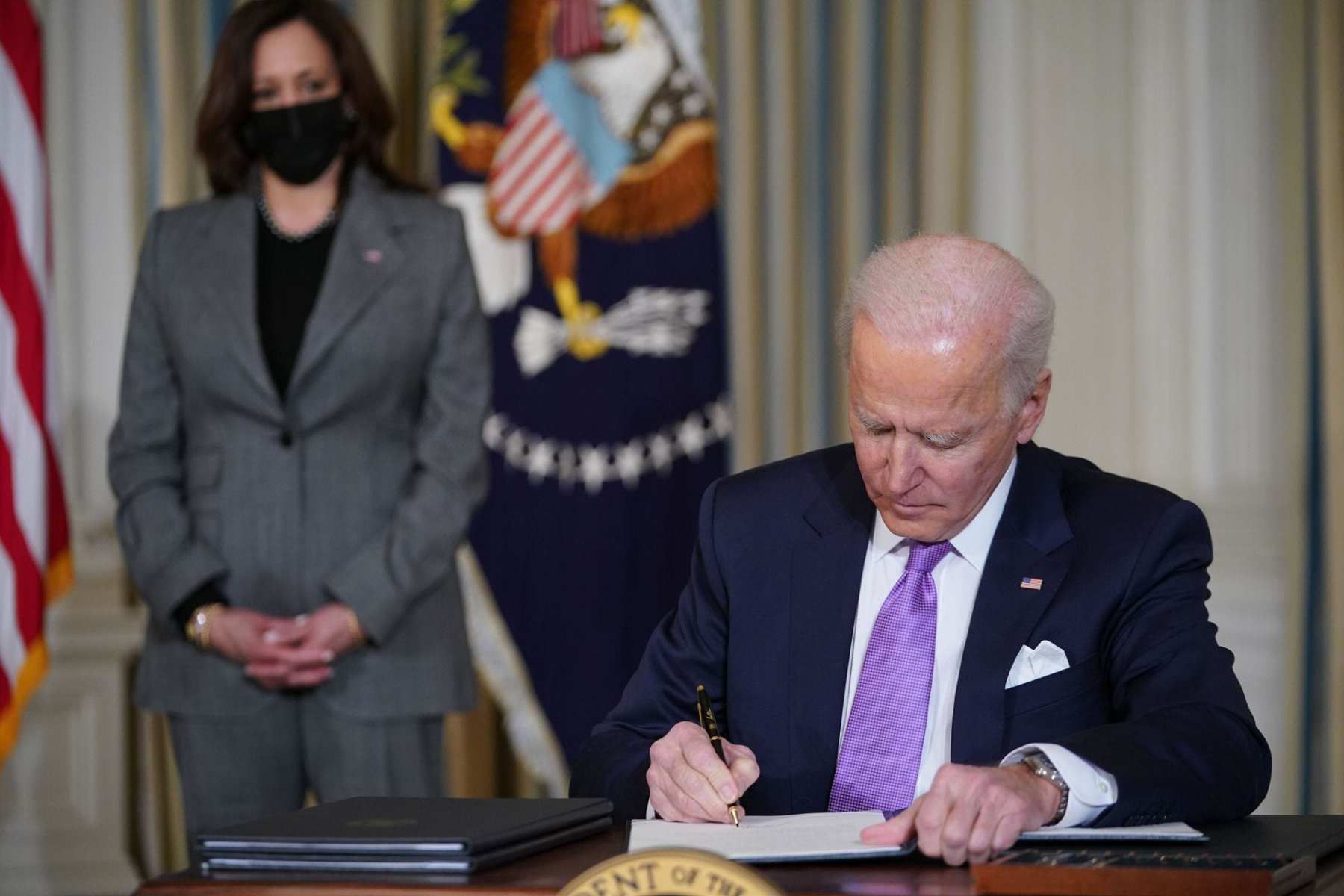President Joe Biden on Tuesday initiated the process of phasing out the use of private prisons in the federal system, one of four executive orders that he said were designed to address racial inequities.
“Yes we need criminal justice reform, but that isn’t nearly enough,” Biden said. “We need to open the promise of America to every American.”
Of the 122 federal prisons in the United States, only 11 are privately operated, and none of those house women. Still, advocates see Tuesday’s executive order as a step in the right direction to helping incarcerated women and LGBTQ+ people. But now they’re waiting for more.
Donna Hylton, a formerly incarcerated woman and criminal justice advocate, said you can’t talk about eliminating private prisons without larger conversations about immigration detention and state prisons that detain the overwhelming portion of incarcerated people in this country. She hopes that this administration will “open the doors” for women like her, to hear their stories, and pay attention to the plight of women in the justice system — both violent and nonviolent offenders.
Research shows that many incarcerated women and girls are survivors of sexual assault and childhood trauma and that at least 30 percent of those serving murder or manslaughter charges were protecting themselves or family from violence. Hylton chronicles the sexual assault she endured as a child in her memoir, “A Little Piece of Light: A Memoir of Hope, Prison, and a Life Unbound.” It wasn’t until Hylton got to prison that she realized how common her story was.
“I thought that I was alone in my pain and my hurt. I went into prison, and that was not the truth anymore,” Hylton said. “…I was like, ‘Wow I’m not alone, so I’m not this monster.’”
When you lock up a woman, you lock up families and communities, Hylton said. Prison Policy Initiative, a nonprofit, nonpartisan research and advocacy organization, found that 80 percent of women in jails are mothers. Hylton hopes the Biden administration will help break the cycle — the population of women behind bars has increased more than 700 percent since 1980.
Richard Saenz, a senior attorney for Lambda Legal, the oldest legal organization dedicated to civil rights for LGBTQ+ people, said Tuesday’s executive order ending private prisons was good and necessary. He sees it as a step toward undoing the actions of the Trump administration and a few steps forward beyond the Obama administration.
President Barack Obama made a similar promise to stop the use of private federal prisons at the end of his administration after an inspector general report from 2016 found contracted prisons incurred more assaults and safety breaches than federally operated ones. President Donald Trump quickly reversed course, as his Department of Justice committed to using private federal prisons in February 2017.
“I think that President Biden’s urgency for a lot of these issues is warranted,” Saenz said. “I think the fact that they are talking about incarceration as an equity issue is important.”
However, Saenz also noted that the administration has huge potential to beef up the role the federal government plays in setting model policies for states to follow and investigating state prisons. The Department of Justice is still in an ongoing investigation stemming from Ashley Diamond, a transgender woman who sued Georgia’s Department of Corrections in 2015 for the abuse she suffered in men’s prisons. The DOJ is also investigating the Lowell Correctional Institution, a state-run women’s prison in Florida, for patterns of staff sexually abusing prisoners since at least 2006.
Saenz said the Biden-Harris administration can also learn from what some states have done to protect transgender prisoners in their custody. Last year, California passed legislation to house prisoners according to their gender identity, protections that the Trump administration eroded at the federal level.
In 2018, the Department of Justice and Bureau of Prisons (BOP) changed the Transgender Offender Manual and instructed prisons to detain transgender prisoners according to their biological sex — assignments according to gender identity were for undefined “rare cases” only.
Lambda Legal and the Southern Poverty Law Center sued and learned that, as of 2018, nearly 600 transgender people were in BOP’s custody. Three in four of them are trans women, the remaining quarter are trans men. The manual had been issued three years after the Bureau of Justice Statistics reported that more than one in three transgender people in prison reported sexual abuse by staff or other prisoners, a rate nearly 10 times the general prison population.
“We saw it for what it was — this really weakened protections for incarcerated transgender people,” Saenz said. “… And it really sent a signal to states: You don’t have to do more, because this is what the federal government is doing.”
Especially as the COVID-19 pandemic worsens inside of prisons, Saenz said the Biden administration must ensure that transgender people behind bars are safe and have access to medical care, an issue that advocates have been fighting for long before the virus. Saenz hopes that the new administration will use its power to not only fix this, but take it as an invitation to do more to protect people in custody and model what states can do.
“But, I think that only goes to if we accept that incarcerating people is the answer,” Saenz said. “I think there is a larger discussion here around decarceration, and issues around criminalizing LGBTQ+ people, and the disproportionate impact of transgender people who are in custody. I hope the Biden administration is open to those discussions and it’s not just talk, but actually putting policies and action and money into some of these efforts.”






